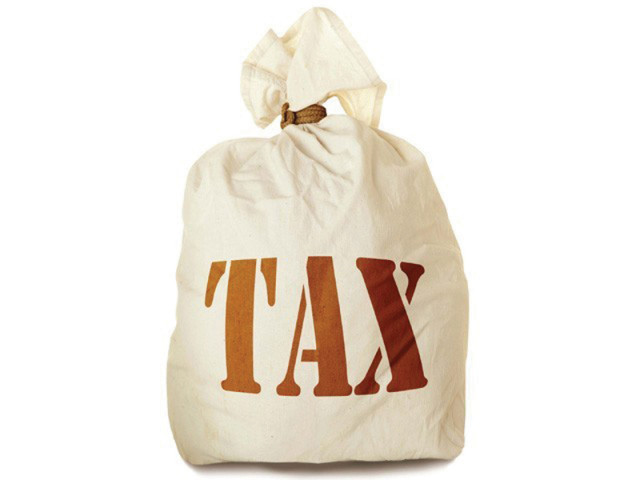Woes: Discrimination among honest taxpayers discouraging
Current incentives offered are nothing but a formality.

Current incentives offered are nothing but a formality. DESIGN: ESSA MALIK
The recent figures disclosed by the Federal Board of Revenue (FBR) reveal that there are almost 3.5 million registered National Tax Number (NTN) holders. Out of these, so far only about one million have filed their tax returns during the current tax year. However, the government still anticipates that the tax collection target for this current fiscal year of Rs2.475 trillion would be achieved. Under the present tax collection performance, it seems that the FBR may be facing a really difficult challenge ahead.
To improve tax collection, the government announced several incentives to encourage additional tax payments. These included incentive to dormant NTN holders, immunity from audit for existing taxpayers, incentive to new taxpayers, and a taxpayers’ “Privilege and Honour Card Scheme”. This Scheme was notified and its details were put on the FBR’s website
The “Privilege and Honour Cards” would be issued to the 100 top taxpayers in four different categories that include CEOs of companies, salaried individuals, non-salaried individuals, and members of Association of Persons. It was also notified that excellence awards will also be given to the top 10 taxpayers in each of the above categories. Benefits of the privilege cards shall include use of VIP lounges at various airports around the country, fast-track clearance at immigration counters and issuance of gratis passports. In addition to this, the cardholders would also be invited to an annual dinner with the prime minister at the Excellence Award Ceremonies along with various national celebrations and other state banquets.
A first list of salaried Individuals has been made available to the public.
This notified list is composed of all those persons who are already earning huge salaries, have remunerations and other privileges. By virtue of their positions and wealth, they already have access to the privileges that have been mentioned in the scheme. Whenever these individuals travel, a special escort is already available to them arranged by their employers. They are eligible to avail these services by virtue of their travelling in business or first-class or through credit cards that entitle them to this facility. Their immigration clearance is just a formality and they already avail the services of special facilitators for customs formalities. Any privileges awarded to them are nothing more than a formality and should not make any material difference to enhance tax collection. Tax collection can only be increased through encouragement and recognition of all taxpayers, who may be paying smaller amounts in tax but are numerous in number.
This is an important element that is missing in the scheme. If a person is paying higher tax, it is simply because his taxable income is higher. If taxes are being paid honestly and on a timely basis, all taxpayers should be recognised on an equal and similar manner and there should be no discrimination among them.
If higher payment of tax is the only basis for being included in the award list, then it means that a small taxpayer has no prospects of being included in the list as he was not blessed to earn more and therefore paying higher taxes. There already exists a strong perception that tax collection has gradually decreased because of our VIP culture and this scheme is only adding weight to this notion.
It would have been interesting to see that these ‘privilege cards’ would have been announced on other equitable and acceptable criteria. Factors such as number of years of uninterrupted tax payments, concealments and discrepancies, or lack thereof, in filing the taxes, could have been considered.
It is understandable that not all taxpayers can be included in this scheme but at least ‘recognition cards’ could be issued to those who have consistently paid their due tax liability during their lifetime. Is it not proof enough of being an honest taxpayer? These cards, as a recognition symbol, could, among other things, be used as a facilitator for obtaining and renewal of passports, driving licences, and school and college admissions for the children of the cardholders. The cards could also be used to get utility connections on fast-track basis. Such a card scheme would not only create a sense of pride in a common taxpayer, but also encourage non-filers to participate.
The key to increasing tax collection is to treat all taxpayers equally, to not discriminate among taxpayers, and to give them equal and due recognition.
The writer is LLM (Corporate Law), LLB HONS from Northumbria University UK and a Fellow member of Institute of Chartered Management Accountants UK.
Published in The Express Tribune, April 7th, 2014.
Like Business on Facebook, follow @TribuneBiz on Twitter to stay informed and join in the conversation.



















COMMENTS
Comments are moderated and generally will be posted if they are on-topic and not abusive.
For more information, please see our Comments FAQ